La Danza Poetica #15 Italy, Greece & The Griko Connection
In this December edition of La Danza Poetica we travel through poetry, song, hip hop and folk traditions down the peninsula of Italy through the Magna Graecia and the Griko culture of Greek settlers on the Italian coast. Then, we cross the Ionian sea to Greece for the sonorous low bap form of hip hop, including a collaboration with an Australian poet, bringing me full circle home to Melbourne as the first days of southern summer wake up dancing feet and beating hearts! With our honoured ghosts, poets Peppino Celano, Ariggo Lora-Totino, and Odysseus Elytis.
Tracklist
Orvieto bells recording by Lisa Greenaway
Giovanni Fontana - Audiocollage-N1-1968
Matteo Buratti - Addio Al Terminal
Omelette Polari - Bomber all'Inglese
Moncef Ghachem, Biagio Guerrera & Pocket Poetry Orchestra - Rosa Viola
Rosapaeda - No Police
Omelette Polari - Ballad
Carlo Muratori & Privitera Ensemble - Sta Notti a Lu Mè Gesù, Cristiani a Lu Venniri Chianciti, A Gisuzzu Lu Pigghiaru, Venniri Santu
Ghetonia - Is Oriamu
Rosapaeda - O Re Re
Peppino Celano - cuntastorie, de Sicilia
Mario Incudine - Garibbardi a Palermu
Mario Incudine - Beddu Garibbardi
Mildtape - Layer One
Arrigo Lora-Totino - E È
Arrigo Lora-Totino - La Lingua
Don Gua f. Lure & Zero Plastica - Flow Flow
Alfio Antico - Proverbi
Zero Plastica - Speranza
Avleddha - Lòja Jà Sena (Stefano Miele remix)
DJ Madness Key - Το waltz / των χαμένων ονείρων
Giovanni Fontana - Radiodramma-Utricolo-Sacculo-1980
Odysseus Elytis (reader/recording unknown) - The Orange Girl
Poetic [Low Bap] - Για Καλό ft. Kooz (For Good ft. Kooz)
Active Member - Παραπόρτι
Ramon - Μια Αφήγηση Ακόμα
Luka Lesson & Active Member - Throw My Luck / Τύχη
Thomas Sopilidis - Σημάδι βάλε / Simadi vale
Notes on the show
"The Italian South is also known as Magna Graecia (Greater Greece) for good reason; it and Greece have formed part of the same cultural space since at least 700 BCE. It was at that point when the first settlers from Greece arrived on the Italian shores, establishing colonies and creating trading posts that brought them closer to the indigenous civilizations, such as the Etruscans ... Through traditions, faith and trade the two regions were always very close to each other and people moved across the...narrow Straits with ease. It is within this context that one should view the existence of two communities that speak two linguistic idioms that are similar to each other and to Greek.
"Griko, the language spoken in Salento (Puglia region), and Grecanico, the one spoken in Calabria are so close as to allow people from both to understand each other without particular problems, even though the communities of Salento and Calabria have almost no contact between them. As in many other cases, the twentieth century was a period of rapid assimilation of the indigenous cultures ... By the early Seventies, the situation was desperate, with most of the old native speakers having died, the language not being spoken by the young in an attempt to integrate the community in the social life of the mainstream Italian culture and a lack of official recognition. Even the Greek State had no knowledge of that community. Then, during the seventies, indigenous cultures all over Europe faced something of a renaissance ... [and] this was happening in Italy as well, a country where local traditions and local linguistic idioms are very strong and where the South was beginning to assert itself against the traditional power center of the North. This movement was evident in the Grico community, with young people showing a greater desire to learn the language and use it, and by a new wave of ethnomusicologists who came to record the old ways. People, and later private institutions and the Greek State, also got interested in those "long-forgotten brethren..."
I don't usually quote whole slabs of other sites like this, but Nondas Kitsos explains eloquently so I figure it's worth reading in whole. You can keep reading at http://www.rootsworld.com/griko/griko1.html.
This article is also where I started the journey of this dance, a year ago when I made the first La Danza Poetica from, and about, Italy. Nondas goes on to talk about the music:
"It is also worth noting, in this age of civil wars and ethnic conflicts, that the relationship between the Grico minority and the Romance (Latin idiom-speaking) majority has always been quite good. There are many cases where bands from the two communities will cover songs of the other (such as Ghetonìa and Arakne Mediterranea) and there is a strong desire for co-operation rather than local cultural assertion."
Nondas Kitsos also introduced me to the songs of Avleddha, Ghetonìa, and Giovanni Avantaggiato (who appears in La Danza Poetica 001). That first show covered more of the tarantella, and stornelli styles - this time, we focus on the South and Sicily, and the Griko connection.
This edition also owes a debt to my friend Joe Malignaggi, who presents a radio show here in Melbourne, Australia called Pippo's Minestrone, focusing on his own Italian heritage in Siracusa. Joe introduced me to Carlo Muratori, Alfio Antico, and Mario Incudine, as well as some great artists I couldn't fit into this show: Talèh, Shakalab, Roy Paci, OSS (> for the next time!)
So La Danza Poetica 015 explores this cultural intersection, and celebrates the fact that, as Nondas says, connections are being made, traditions are being explored, and differences being put aside for the sake of music, story and art. Cultures coming together in this way form further brilliant creations, new passions and expressions of the colours of life. All of the artists in this month's podcast are great examples of this.
Moncef Ghachem of the Pocket Poetry Orchestra says (in this interview on the blog Sempre Sicilia) "It is our sentiment that poems and music [as well as people] can “illegally” travel across the sea and find a new, common life together."
The Pocket Poetry Orchestra's album Quelli che bruciano la frontier (Those who burn the border) was released in 2011. It is a meditation on the stories of migrants and refugees from North Africa coming by boat to Sicily. The Pocket Poetry Orchestra is based in Catania, Sicily, a collaboration between Sicilian musicians and Tunisian poet Moncef Ghachem. Moncef’s poetry translated into Sicilian by Biagio Guerrera and presented as a series of letters from the soul, speaking of the suffering of immigrants - a universal suffering.
Quelli che bruciano la frontier is the literal translation of the Arab word harraga that is used for the illegal immigrants that cross the Mediterranean Sea in old and dangerous boats, many drowning tragically. Two female figures of memory express the journey – Moncef’s mother, daughter, wife, mother of fishermen, guardian of ancient culture and Rosa Viola, the grandmother of Guerrera who in the 1920s travelled from Odessa to Gibraltar with his grandfather. This is a beautiful interpretation of poetry - Biagio working closely with Moncef to translate, the orchestra speaking as eloquently as the poetry. It's not 'easy' listening, but if you are interested in poetry and music composition and conscious storytelling, I really recommend this album.
At the top of the show, and also mixed in later, two fascinating audio collages by Italian artist Giovanni Fontana. From Alatri, Giovanni is a performer, visual artist and architect, author and electroacoustic sound artist. His major interest is in intermedial writing, multi-code language, poesia sonora, poesia d’azione, "epigenetic poetry". He produced his first personal exhibition in 1963, illustrating short stories of fantasy, experimenting with the connection between literature and figurative arts. He founded the theatre company Teatro Nuova Dimensione and has published many books, recordings and plays. Audiocollage-N1-1968 is taken from the CD Hypervox - Antologia sonora 1968-2009.
Later in the show is Radiodramma-Utricolo-Sacculo-1980. In live performance, poetry is not just sound but visual, body, emotional, textural. The energy in these sound works is a force in itself, the confident and playful experimentation Italian artists naturally express is exemplified by Giovanni.
The Italian language as a beautiful melodic hip hop form is perfected by Matteo Buratti, aka Burro, aka S-Trip Poetry, out of Bologna. S-Trip Poetry brought together some of the best rap / hip hop artists in Italy working with Matteo's texts, the resulting album a piece of true collaboration. Drawing the best from hip hop and from slam poetry styles, creating a fresh kind of lyrical spoken word. The album Vento D'Estate (Summer Wind) came out in August this year.
Omelette Polari is Luca Capiluppi, from Rome, making spoken word and abstract music. His Electronic Stories collection is a series of improvisations in voice, sound and music, around subjects as diverse as Jimi Hendrix, Ginger Rogers, John Coltrane and Winston Churchill:
Over Omelette Polari’s Ballad, a selection of religious poetic ‘laments’ from Carlo Muratori’s album Pesah - songs and music of Holy Week in Sicily. Carlo explains: "The ladate and laments are popular songs of religious argument by an anonymous author, telling the story of the passion and death on the cross of Jesus Christ. During Holy Week rituals are still performed in Sicily, and across Italy. This album features the laments and the polyphonic folk song of the region, which traces back to ancient roots. The laments themselves are fascinating as they focus more on the human drama of the passion, rather than the gospel message. The pain of the mother, the search for the child, a dialogue with the blacksmith preparing the nails for the cross, and a monologue with the cross." Carlo Muratori is a songwriter and scholar of folklore from Syracuse. Since the 1970s he has studied Sicilian folk culture and revived the folk music of the south.
Pugliese vocalist Antonella “Rosapaeda” Di Domenico is a singer on an interesting journey from popular reggae sounds to explorations into the folk music of her native land, reworked through her modern experience. She also incorporates Arab scales and melodic lines from the Italian south into her unique vocal stylings. The track No Police is taken from her Napoli in Me album, a tribute to Roberto Murolo, the guitarist and singer from Naples who spread Neapolitan traditional song around the world. The track later in the hour, O Re Re, is from the 2008 album Mater Heart Folk, bringing Neopolitan melodies into modern sounds, from Italian nursery rhymes to Pizzica tarantella ragga trances.
The famed group Ghetonia (Griko, meaning neighbourhood) is a cultural group based in Calimera, Grecìa Salentina in southern Italy, which exists to preserve the music, poetry, language and folklore of the Griko-speaking people of Salento by documenting the various aspects of the Grecìa Salentina traditional life, history, language and folklore. The music arm of the group is made up of Roberto Licci, Emilia Ottaviano, Salvatore Cotardo, Emmanuelle Licci, Angelo Urso and Franco Nuzzo. Krifì is the album. (I also nicked the artwork for this podcast!).
Mario Incudine appears in the middle of this section, the Sicilian singer, actor, musician and storyteller. From his 2011 album Beddu Garibbardi, released on the 150th anniversary of the Risorgiemento, the unification of Italian peninsula, dedicated to the hero of the Risorgiemento, Giuseppe Garibaldi. Drawing from the traditional poetry and songs of Sicily, including the cunto, an oral storytelling performance style, Mario creates a modern epic of the heroes and villains of the creation of the Italian country.
The Italian chivalric-epic tradition is based primarily on medieval Carolingian lore from France. Oral and written manifestations of this tradition influenced and enriched each other across the centuries. The Sicilian cunto is a type of oral performance that has survived into the twentieth century.* Mixed in with Incudine is a recording from 1962 of Peppino Celano, one of the last cuntastorie (recorded in Palermo by Roberto Leydi, in La canzone narrativa e lo spettacolo popolare. Vol 2. Albetros, n.d.). The climaxes of the cuntu performance were the combat scenes (duels or battles) when the cuntastorie would narrate in an animated and syncopated rhythm. This technique demonstrates a beautiful confluence of narration and parlalinguistic elements in performance: The storyteller's words narrate the sequence of events, while the rhythm of his voice - accompanied by the occasional whack of his wooden sword - conveys the action (*taken from this essay by Antonio Scuderi in the Oral Tradition journal).
Check this recent video from Mario Incudine's latest album Italia Talìa:
Moving into the electronic present with Mildtape's really nice Layer One dub from the Dub Alpina release, free on the LibreCommeLair netlabel. Mixed here, two concrete poems from Arrigo Lora-Totino - e è and La Lingua. A poet, a performer, a writer, an artist and a publisher, Lora-Totino is both a major pioneer in European concrete and sound poetry and a key figure in Italian experimental poetry. Author of numerous essays on visual and sound poetry, Totino was a man of extreme inventiveness. He has developed the Idrornegafono, a rotating horn allowing a projection of the speaker's voice in a 360 degree circle; or the hydromegaphone used in a series of Liquid poems in which the voice is sounded through water. He also appears in LDP 001, Ciao Bella.
Before we cross the Ionian sea we shift into dance mode, to hip hop and to funk, to the north, and out to the world of music, via the talent of Italia. Released in October CuBass is a collaboration between Genoa hip hop crew Zero Plastica and some of the best emcees in Cuba. Beats by DJ Nio and rap by Lure and El Don Gua.
Video for Flow Flow:
Also from DJ Nio Zero Plastica the track Speranza from his 2011 album Basta! An eloquent cry against Prime Minister Silvio Berlusconi’s corrupt and propaganda-led system, Basta! was symbolically released in Italy on April 25, Liberation Day. Zero Plastica is DJ, MC and producer Nio working with Funky Lure.
From the soundtrack to the 2010 film I Malavoglia(The House by the Medlar Tree), Alfio Antico. Pasquale Scimeca's film is an adaptation of the 19th-century novel by Sicilian author Giovanni Carmelo Verga, about the trials and tribulations of a fishing family in Sicily, which takes the original story and injects modern-day elements (illegal immigrants, contraband trafficking, rock music). Alfio Antico is an influential composer, percussionist, heir to the folk traditions of Lentini, Sicilia. The track Proverbi features Sicilian proverbs.
Whenever I'm preparing LDP there is always one track I 'waste' time swooning over (though swooning is never wasting time!) This episode it's Avleddha. A band updating the musical tradition of the Griko community in Puglia, Avleddha's festive sound is reminiscent of the musical tradition of Napoli. The track Lòja Jà Sena is remixed by UK-based Italian DJ and producer Stefano Miele, who released the Glocalizm album in 2006 working with many of the great southern Italian folk bands including Avleddha, Arakne Mediterraneo, Rosapaeda, and Ghetonìa.
Lòja Jà Sena comes originally from the album Ofidèa. The album tells the story of Ofis (from the Greek for 'snake') a creature which on the European continent suffered unjustified prejudice and persecution (due to ignorance of its actual usefulness in control of rodents and the balance of nature) that almost led to its extinction. The snake as metaphor for the culture and language of the Grika, and many other marginal cultures almost or totally lost through ignorance and prejudice. Viewed as a "people with two languages" / "forked tongues", the Griko people have often been distrusted on the mainland ... a pretty powerful metaphor!
This beautiful track from Avleddha is our boat, to take us across the seas to Greece where we spend the rest of this dance, into some low bap, Greek independent hip hop, and a collaboration that brings us back to this island where I'm writing now - Australia, home to many Greek people since the 1800s.
Another "honoured ghost" this episode is the famous Greek poet Odysseus Elytis, mixed in here with Madness Key. Recipient of the 1970 Nobel Prize for Literature, the “sun-drinking poet” and anti fascist activist was born in Crete and died in Athens in 1996. This recording of the poem PORTOKALENIA comes from this video - and I don't know the voice to credit her. But check the video, and the description, which features English translation of the poem as well as Odysseus' biography. It's nice work.
Australian/Greek poet Luka Lesson inspired me this journey to explore the sounds of Low bap, through his collaboration with the pioneering group Active Member, from Perama outside Athens. The EP ΠΕΡΑΣΜΑ / PASSAGE released this month, bridges the gap between generations of conscious hip-hop fans worldwide and Lowbap lovers in Greece, and connects histories of political upheaval, poetry, music, migration and return ... [It] also provides a grass-roots look at the current climate of a country lost in a battle of its own right to be free from the shackles of economic and political instability." The EP is available as a free download from the Bandcamp link above. Then, I recommend the video for the track I feature here, Throw My Luck (TYXH), Luka telling ancestral stories of migration, and of a son returning to the homeland:
From Active Member we hear Παραπόρτι For over 20 years B.D.Foxmoor and Sadahzinia have been committed to conscious story-telling over haunting and unique low-fi beats. Since 1992 when Foxmoor released the first greek hip hop album Protest, he’s been the fire behind the scene, with Freestyle productions releasing something like 120 albums since, as well as defining the term low bap, for the slower tempo, orchestral sounding, political rapping defined by Active Member’s work. The low bap movement encompasses live concerts, recordings, festivals, zines and bookstores. The Low Bap Foundation is the place for a massive collection of great, aware, intelligent political music. Do go and spend some time! Also released on the Low Bap Foundation is Ramon's track Μια Αφήγηση Ακόμα, which features some seriously good melodic scratching. Ramon is B.D.Foxmoor's son and so apparently was rapping from birth!
And this epic show wraps with a gorgeous folk track from Greek singer, songwriter and bazooka player Thomas Sopilidis, from his 2011 album Αχ βαχ, με έκαψες Βαρβάρα! I came across this album purely by accident (the joy of doing this podcast) and love his deep romanticism.
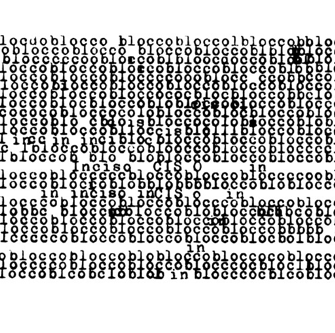

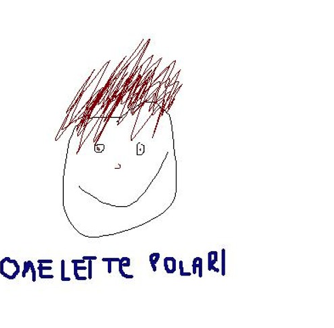
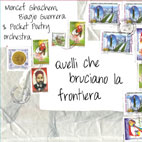
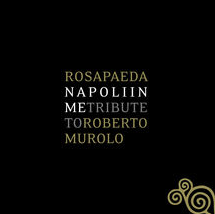
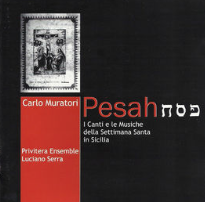
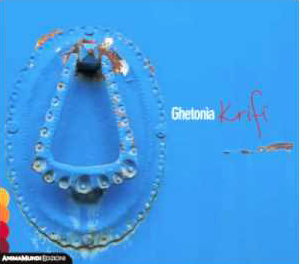
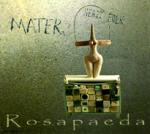
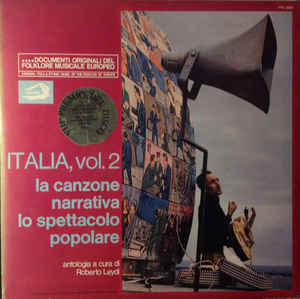
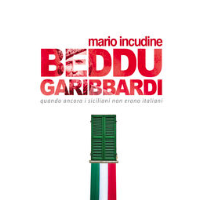
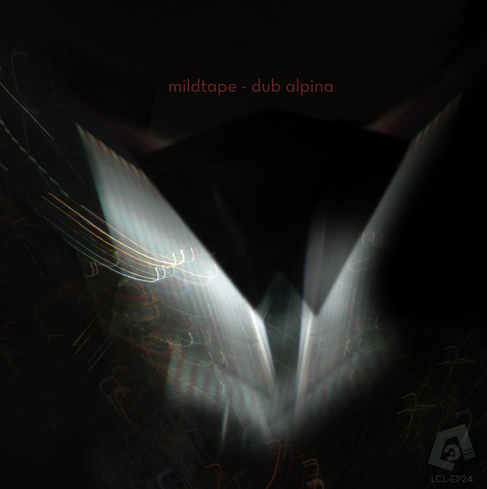
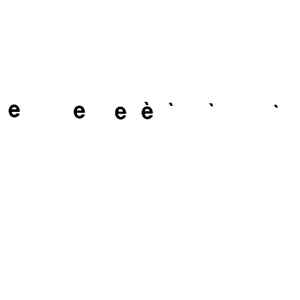
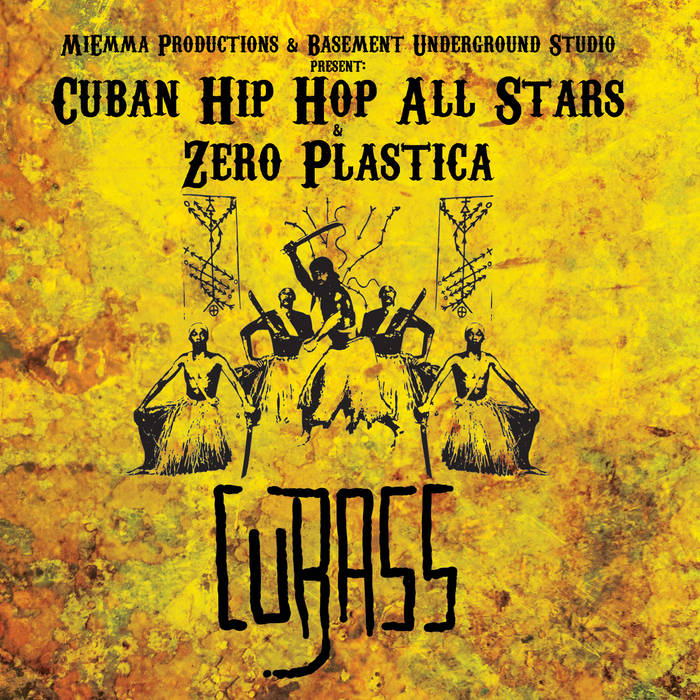
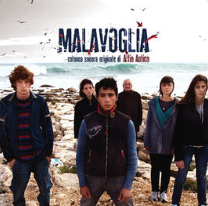
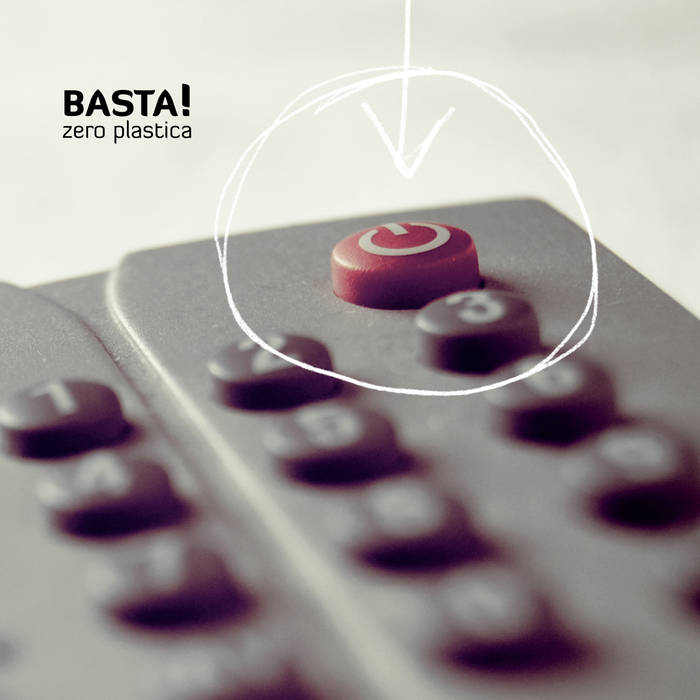
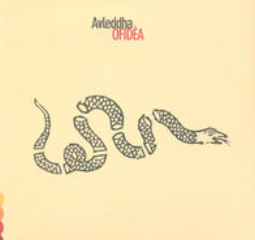
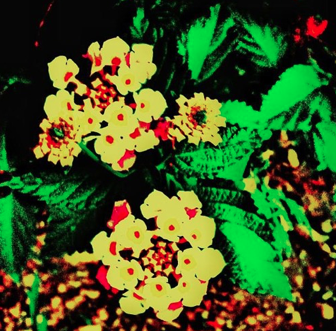
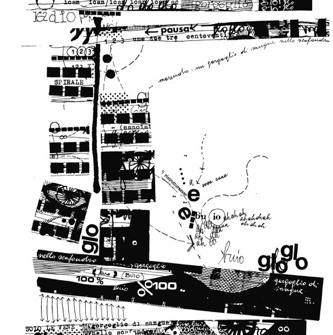
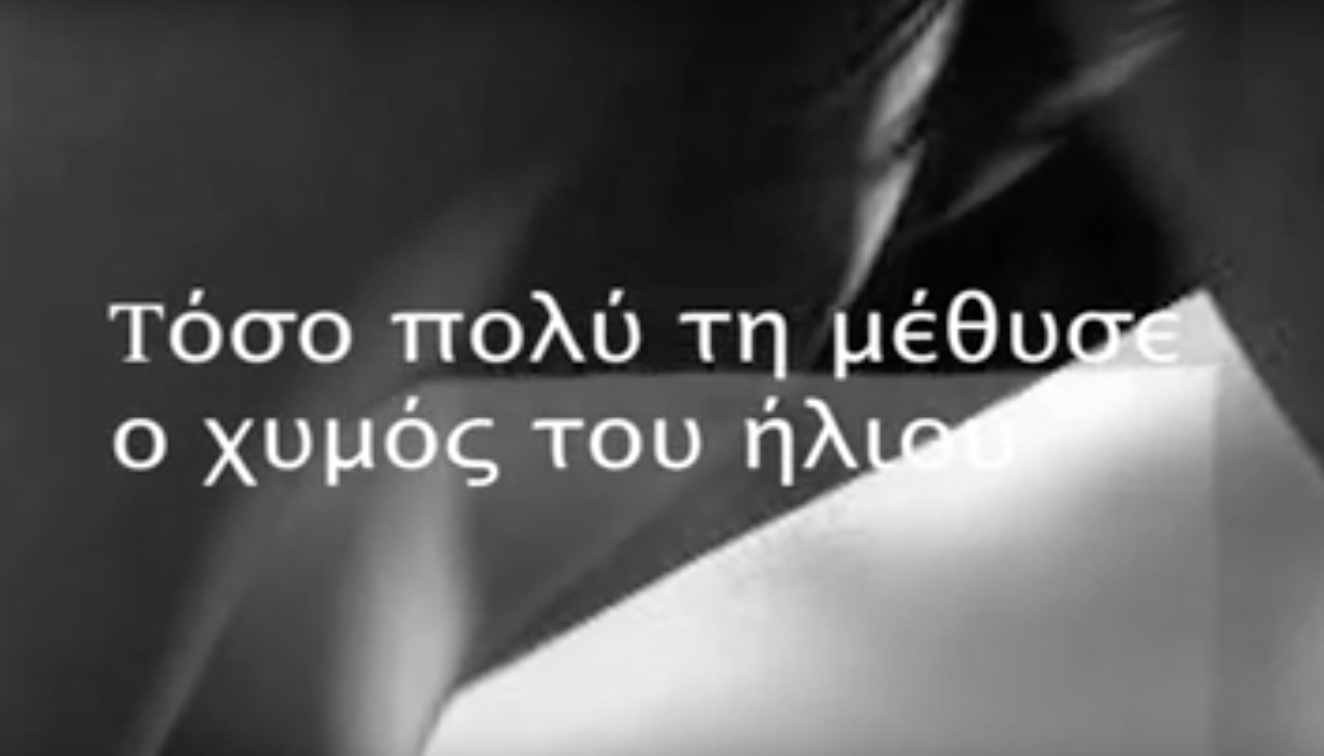
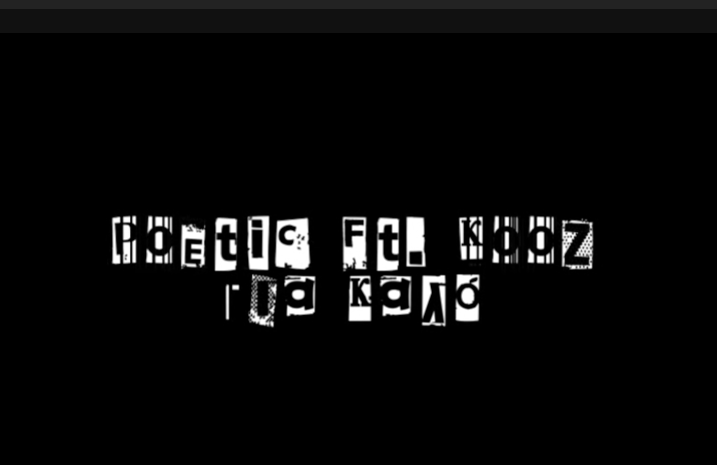
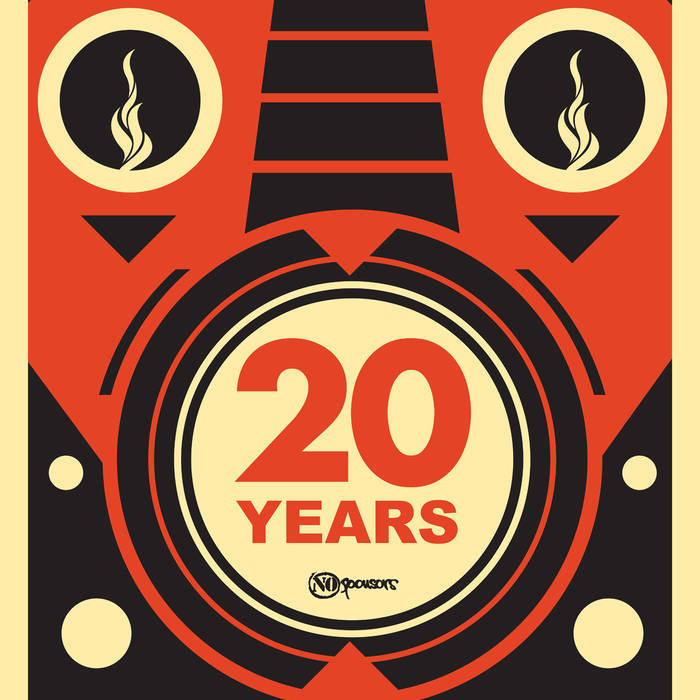
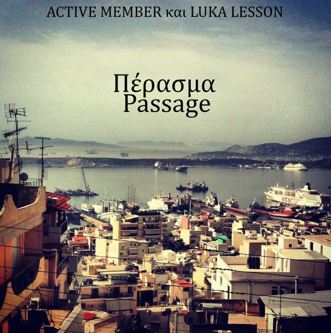
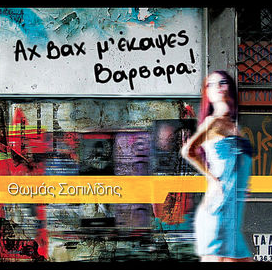



![La Danza Poetica #33 Εμπιστοσύνη [Trust]](https://images.squarespace-cdn.com/content/v1/54d825ade4b0b474c08598ec/1439777060723-LAG4IL2NX6NARNHQU55H/image-asset.jpeg)


